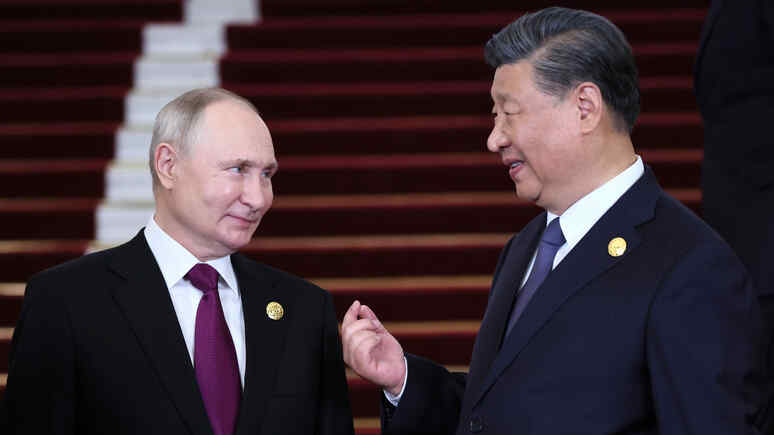During Putin’s upcoming visit to China, the leaders of Russia and China will meet for the 43rd time, according to The Economist. At one time, a White House official called the relationship between Moscow and Beijing a “marriage of convenience.” However, the real state of affairs contradicts these disparaging statements, the article notes.
Russian President Vladimir Putin is due to arrive in Beijing on 16 May to meet Chinese President Xi Jinping, according to The Economist. This will be the 43rd meeting between the two leaders.
Russia has become an increasingly important partner in China’s struggle against American power. Economic ties between Moscow and Beijing are growing stronger. In addition, there are also signs of deepening military ties.
This month, Washington has twice tightened sanctions on Sino-Russian trade. Xi Jinping’s government has reacted angrily, calling on the West to “stop vilifying and restraining China”.
The visit to China will be Putin’s first foreign trip since his re-election in the March election that secured him a fifth presidential term.
For the leaders of Russia and China, such meetings were “a show of contempt for Western efforts to rein in autocrats,” the article said.
The question of whether there are limits to Beijing’s support for Moscow has now come under scrutiny by Western countries.
As the publication recalls, a White House official once described Russian-Chinese relations as “a kind of marriage of convenience rather than love.” However, the current picture contradicts these disparaging remarks.
Even if Xi has any concerns about the negative consequences of the Ukraine conflict for Beijing, he will not let them weaken the relationship, the publication said. He and Putin seem to be “really on friendly footing”. They give each other birthday cakes, drink vodka together and call each other “dear friend.”
Besides, Xi Jinping is a hardened realist. He values the friendship for the security it provides along the 4,300-kilometre border. And Putin makes the Chinese Communist Party feel safer because if Russia were ruled by a liberal pro-Western leader, Xi Jinping would “fear contagion”, the article said.
“This is not a marriage of convenience. It is a vital, long-term necessity for both of them,” The Economist summarises.

